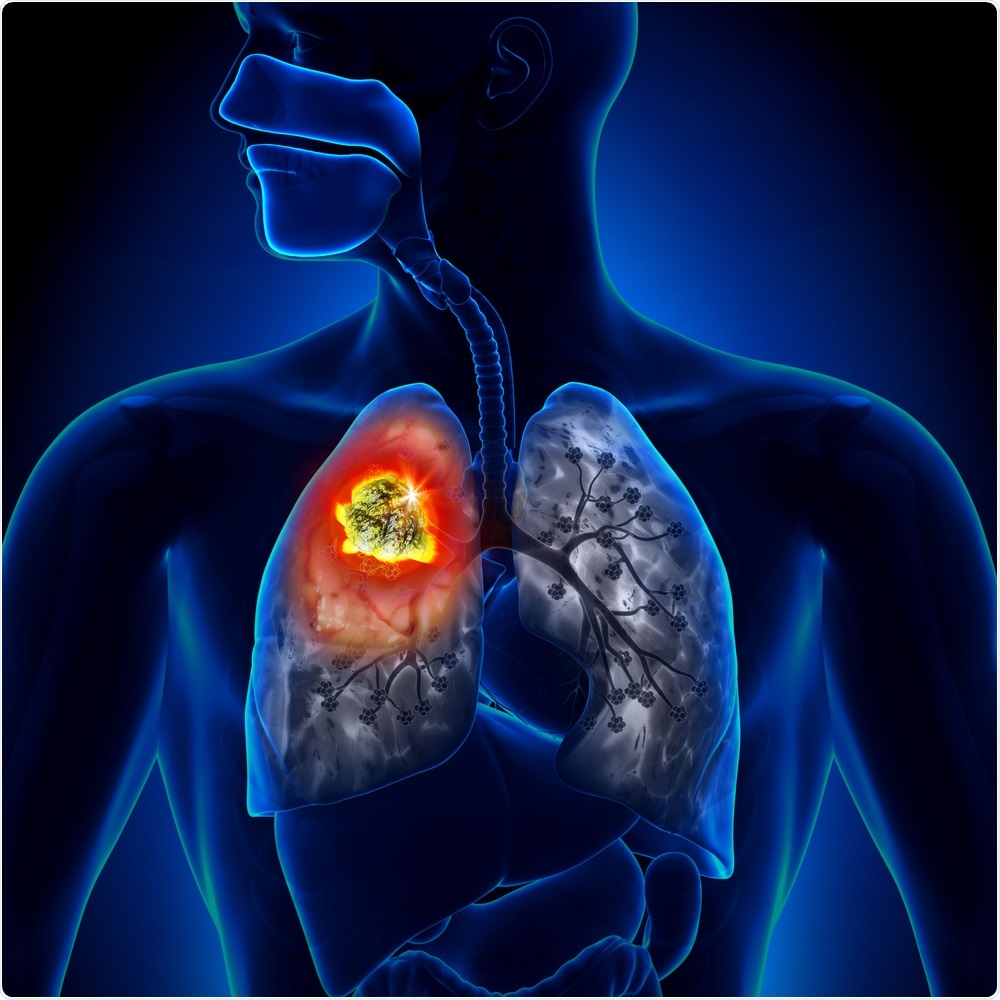A team of scientists from Fudan University and Zhengzhou University, both in China, have recently outlined the need to develop and standardize lipidomic measurements and baseline figures to enable the establishment of lipidomic profile databases.

Image Credit: Decade3d/Shutterstock.com
In a paper, published in the journal Cancer Letters this February, the team describes the central role that lipidomic profiles play in lung cancer, with the heterogeneity of profiles being previously outlined in multiple studies.
This elucidates lipidomic profiles as a key biomarker for both cancer diagnosis and therapy. In the paper, the team explores how lipidomics would be combined with clinical phenomes and multi-omics to deepen our understanding of the molecular mechanisms underlying the establishment, progression, and treatment response of lung cancer, which could potentially also be applied to other forms of cancer.
Lipidomic profiles indicative of cancer severity
Several recent studies have highlighted the lipidomic profiles, which is the level and distribution of fat throughout the body’s tissues, that are indicative of cancer, including its stage, subtype, severity, and response to drug treatment.
The differences observed between the lipidomic profiles and lipid metabolism of different cancer profiles may be related to drug resistance, particularly in lung cancer. However, there is a need for more research to uncover direct evidence of intra- or inter-lung cancer heterogeneity of lipidomic profiles.
The roles of genetics and proteins in the establishment, progression, and treatment response of various diseases, particularly cancer, have been revealed over recent years.
With this in mind, deepening our understanding of lipidomic profiles needs to involve exploration into the links between the processes of the enzymes and proteins implicated in the activities of the lipid metabolism.
This presents the opportunity to integrate lipidomic profiles with those of gene and protein expression, establishing a thorough system for diagnosing, monitoring, and predicting treatment outcomes in cancer.
The team recognizes that the integration of lipidomic data along with clinical phenomics is essential for the identification of new, disease-specific and phenome-specific biomarkers that could help diagnose disease, as well as give information on the nature of its progression.
However, this integration faces several challenges that need to be addressed by the research sector before this integration can be successful. The Chinese research team call for more studies to move this research forward and facilitate the integration between clinical phenomes and lipidomic profiles.
It was suggested that lipidomics with an in-depth mining is an essential field within the multiple omics family and that it could prove to be a lipid-specific tool useful in furthering our knowledge into disease-associated lipid metabolism and specific lipid species dysfunctions, as well as in discovering new biomarkers and targets that would allow for a closer monitoring of disease response to therapeutic drugs, also being able to uncover pathophysiological mechanisms.
More research into heterogeneity of lipidomic profiles is needed
It was revealed that the preliminary data collected from various recent studies have demonstrated the distinct lipidomic profiles related to the stage of cancer, its severity, subtype, and drug response in lung cancer.
This variation of lipidomic profiles in lung cancer and subtypes may be used to help physicians understand more about drug resistance, and enable them to better predict treatment outcomes, and therefore plan more personalized treatment plans.
However, there is a need for more direct evidence to uncover this intra- or inter-lung cancer heterogeneity of lipidomic profiles in cancer before this idea can be advanced.
As our knowledge around the expression profiles of genes and proteins advances, it would prove useful to include enzymes and proteins that are related to lipid metabolism processes into lipidomic profiles.
This would lead to the integration of lipidomic profiles with gene and protein expression profiles, which would help to identify disease-specific biomarkers for cancer, particularly lung cancer, but potentially for a range of cancer types.
Journal references:
Hou, J., Zhang, Y. and Zhu, Z. (2017). Gene heterogeneity in metastasis of colorectal cancer to the lung. Seminars in Cell & Developmental Biology, 64, pp.58-64. https://www.sciencedirect.com/science/article/abs/pii/S108495211630283
Wang, X. (2016). Gene mutation-based and specific therapies in precision medicine. Journal of Cellular and Molecular Medicine, 20(4), pp.577-580. https://www.ncbi.nlm.nih.gov/pubmed/2699488
Zhang, L., Zhu, B., Zeng, Y., Shen, H., Zhang, J. and Wang, X. (2020). Clinical lipidomics in understanding of lung cancer: Opportunity and challenge. Cancer Letters, 470, pp.75-83. https://www.sciencedirect.com/science/article/abs/pii/S0304383519304513#!